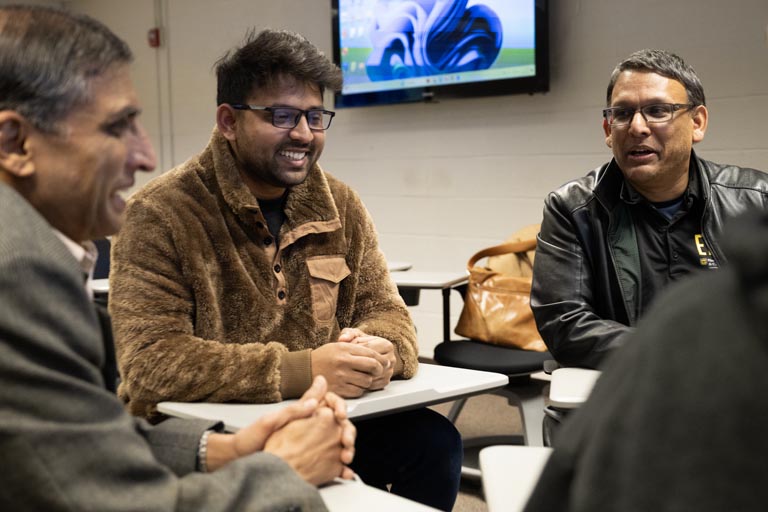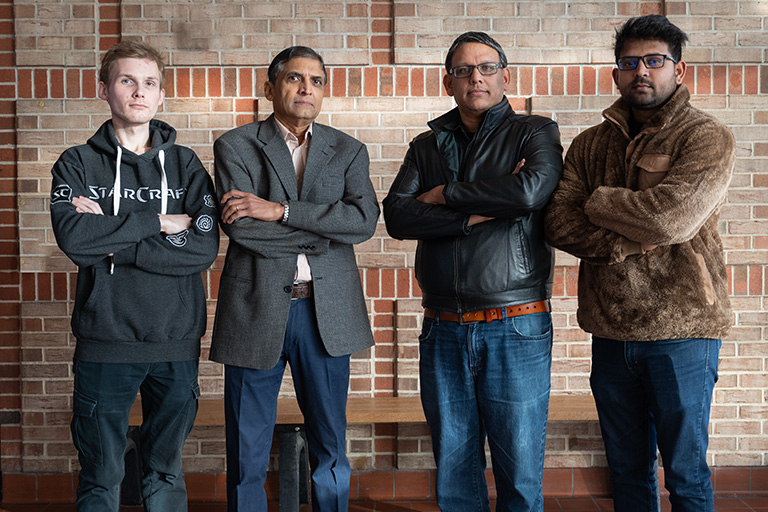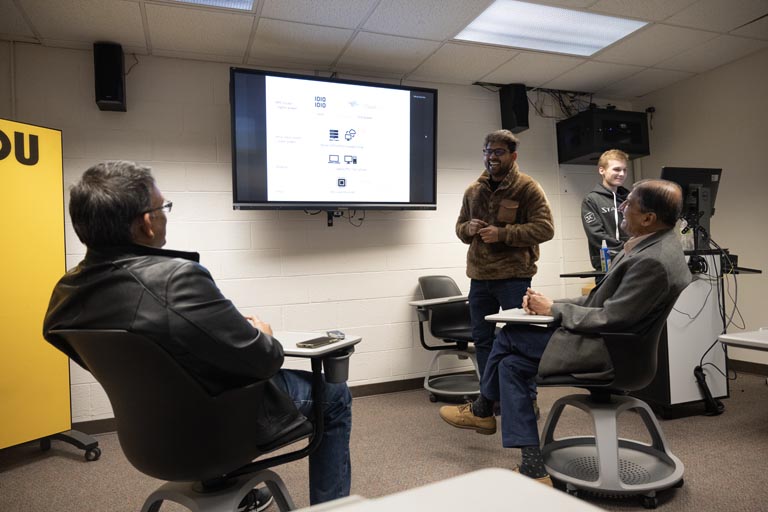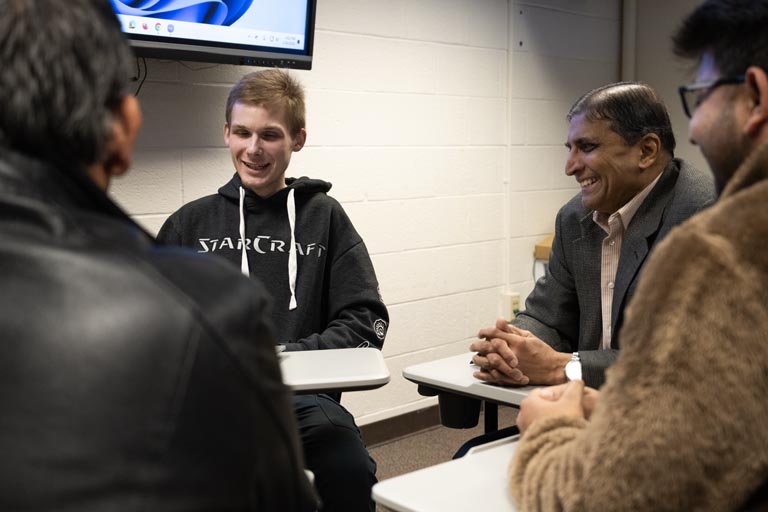January 16, 2025
Two Mizzou researchers and other UM System collaborators received funding from the National Science Foundation (NSF) to develop curriculum to train the next generation of engineers and neuroscientists in advanced cyberinfrastructure.

Students come to Mizzou Engineering for a world-class education. Our faculty are here to make that happen. Now, researchers in the Department of Electrical Engineering and Computer Science are teaming up to develop new courses and a certificate program to train students in advanced cyberinfrastructure for neuroscience.

Satish Nair, a professor and Robert H. Buescher Faculty Fellow, and Praveen Rao, an associate professor, recently received a nearly $500,000 grant from the National Science Foundation to implement an advanced cyberinfrastructure (CI) training program for next-generation neuroscience learning and research.
Nair’s research focuses on computational neuroscience, and he has spent the past few years leading an NSF Research Experience for Undergraduates (REU) to train students in the area. Rao’s expertise is in big data systems and cyberinfrastructure, and he said his passion for improving scalable systems made the partnership with Nair a perfect match.
“Neuroscience research and education activities are increasingly becoming data-intensive,” Rao said. “So, we’re developing integrated neuroscience-CI training that incorporates the Missouri Method of learning by doing.”
Understanding the brain has been a collective goal for researchers for a long time. Complete knowledge can open doors to curing diseases such as epilepsy, addressing the mental health crisis or understanding neurodiversity.
But these things can’t happen without first understanding how the brain functions.
“The brain makes an infinite number of actions during the course of the day,” Nair said. “Neurons are firing constantly, it’s always multitasking. And different peoples’ brains respond to the same situations and stimuli differently. This produces a huge amount of data for neuroscientists to study the functioning of brains in good health and pathology. They need a controlled environment, like a testbed, to make sense of it all. So not only do students need to learn neuroscience principles, but to be effective researchers they also need to be trained on this equipment.”

Testbeds allow researchers to access high-performance computing environments with large amounts of storage and high-speed interconnections to speed up computations and tests. This makes it easier for researchers to test iterations and comb through large amounts of data efficiently.
Nair and Rao are launching the first cybertraining course in their innovative program this semester at Mizzou. The program will allow students to access the CloudLab and FABRIC testbeds for neuroscience simulations. It will feature online-based training and is open to students from all four UM System campuses.
To utilize this technology, the course will introduce research projects for students to explore neuroscience principals using the testbed technology. Rao says he hopes that the projects will inspire students to pursue graduate degrees in the field.
“I imagine this work will inspire dissertations,” he said. “There’s a lot we don’t know, a lot of things people want to know more about, and now ample opportunities for Mizzou students to engage in leading edge research using highly specialized technology.

“When researchers can begin their work with an understanding of the tech they’re using as opposed to learning it on the job, it means discoveries can happen much faster,” Rao said. “I’m excited for the future of this field in the hands of the next generation of neuroscientists and engineers.”
This is a UM System-wide project and includes collaborators Venkata Sriram Nadendla (MS&T), Carissa Philippi (UMSL) and. Seung Lark Lim (UMKC). For more information about the course and how to register, click here.
Choose a university that makes access to technology accessible to undergraduate students. Choose Mizzou Engineering!